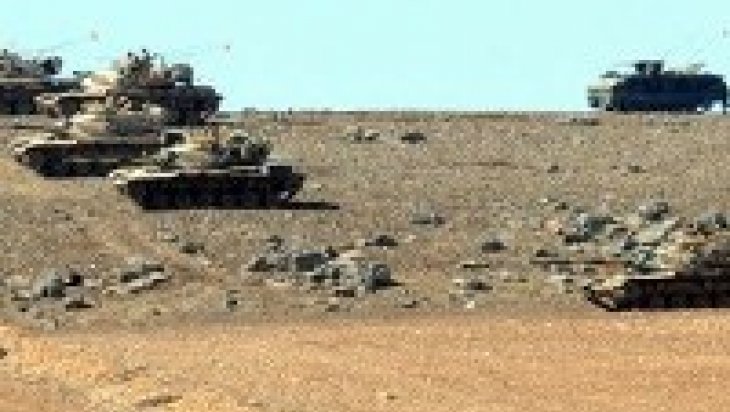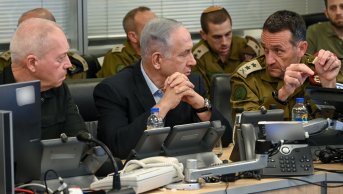Sincerity Test of the International Community under the Shadow of Debates on ISIS and Kobane

While debates on struggle against Islamic State of Iraq and Syria (ISIS) with a focus on Kobane (Ayn al Arab) still go on, it is obvious that the international community is taking a test of sincerity. It is necessary to avoid stereotypical sentences, but it is quite interesting to see that even the Americans criticizing Turkey cannot hide incoherence in Obama’s Syria policy. It is a fact that the ones, who showed a determination regarding chemical weapons (it is questionable that their worries were basically humanitarian) and ISIS, are having hard time to explain their policy towards a crisis that at least 200.000 Syrians killed and nine million are either internally displaced or become refugee in neighboring countries. Under these circumstances, blaming Turkey with some diplomatic rhetoric deserves some criticism. Leaving aside Assad and taking ISIS as the main target will only postpone the problem. Turkey’s western allies are the ones that who know this best. The cases of Afghanistan, Pakistan, Iraq, Yemen, and Somalia clearly showed that this kind of a strategy does not work. Obama presents especially the cases of Somalia and Yemen as a success story; however, the success and stability situations in these countries are problematic. In this context, the whole world is watching that terrorist organizations who declared their loyalty to al Qaida are becoming greater threats to the countries like Mali and Nigeria.
ISIS is not a new phenomena. It was established by Abu Musab al Zarqawi in 2003, and changed its name to Islamic State of Iraq in 2006 after al Zarqawi’s death. The terrorist organization was known as Iraqi al Qaida. After Abu Bakr al Baghdadi’s leadership in 2010, the organization began to refer itself as ISIS in 2013 after allying with al Nusra front. This alliance was short-lived due to the differences in leadership of two organizations and al Nusra leader Abu Mohammed al Jawlani rejected the alliance in a month. Despite this break, the organization continued to use the same name. In February 2014, al Qaida leader Ayman al Zawahiri announced that they are not responsible for ISIS’s acts and declared that their connection with ISIS came to an end. It should also kept in mind that the US could not achieve a decisive success against the group in Iraq, despite all its efforts with its land and air forces until 2011 December.
Therefore, it is necessary to see the underlying causes of the radicalization and emergence of these organizations; otherwise a decisive success against these will be impossible. Among these, the most important factors are invasion of Iraq and staying silent against Sunnis and Kurds’ marginalization in Iraqi politics. In the Syrian case, protracted nature of the civil war, lack of a comprehensive solution, and incoherence in the struggle against ISIS can be pointed out as causes of radicalization. In my opinion, staying silent against the killing of thousands of civilians and invasion over sixty years in Gaza, and supporting the coup within a year against an elected government in Egypt are other important factor that affected the radicalization. In addition to these, it is also important not to neglect the socio-economic circumstances of places where foreign fighters are coming, since these make it easier for the organization to recruit fighters.
But it is another story if the case is trying to compensate the lost prestige and cover passive position during Syrian Civil War by staying behind the Russian and Chinese vetoes. Also, presenting this act in the rhetoric of saving peoples of region, even humanity from a grave threat, shadows sincerity of this operation named ‘sincere determination’. Then, what is needed to be done is finding permanent solutions to Iraqi and Syrian political problems, and at the same time, doing whatever necessary to keep ISIS and similar organizations with their foreign fighters out of this region. There is a need for a comprehensive political project with a political resolution. Otherwise, we will be talking about these problems and other problems created by them for the next twenty years, just like we are talking about the problems of the previous two decades. Hence, a comprehensive struggle strategy should be developed for a durable solution for the regional problems including the ISIS. Success can be achieved if the political determination against ISIS is applied to the other issues. It should be remembered that UN resolutions for Syrian chemical weapons (resolution 2118/2013) and ISIS (resolution 2170/2014 and 2178/2014) are approved with unanimity. Ignoring the fact that neglecting the underlying causes and applying solely military operations will produce new ISIS-like structures, everyone should see that it will bring short term local solutions without permanent peace and stability.
In this context, safe zone fortified with a no fly rule can be a pillar of this comprehensive approach. So far, such decisions have been available with international society’s support whether with or without UN decision. In this situation, Turkey’s initiative role in operating plans for an establishment safe zones near its borders has a great significance. Otherwise, problems that occurred during the Poised Hammer Operation might reemerge. Such a practice will put an end to the refugee waves from areas that ISIS is active, even if it cannot end Assad regime. At least, these refugees will be kept in Syria, thus it will be easier to relocate them when the conflict is over. Safe zone was established with this aim in Iraq after the Gulf War in 1991 and it proved itself to be successful. Otherwise, as it is seen in Kobane case, civilians fleeing both ISIS and Assad forces’ attacks will keep coming to Turkey. The refugees numbering around two million might push the limits of political and societal problems, in addition to economic aspect. Furthermore, it might become even more difficult for these people to get rehabilitation and return their places in Syria.
Therefore, there is a need for comprehensive solution proposals with humanitarian concerns for this problem, rather than ethnic and political concerns. Limiting the case of Kobane to an ethnic problem and putting Turkey’s settlement process at risk is one of the riskiest courses of actions. Acting as if Turkey has the responsibility of resolving the whole Kurdish issue in the region and ignoring the fact that Turkey is hosting 200.000 Syrian Kurds would only work for to harm the trust between sides. Additionally, the dilemma of demanding help from Turkey on the one hand, and acting against Turkey’ interests on the other is not a sustainable policy. Especially, a policy that does not see the fact that a trust environment with a focus on not harming efforts for the settlement process would affect Turkey’s policies positively is not sustainable. A clear proof of this assumption is that Erbil realizes this reality while PYD and its supporters are insisting to ignore it.


